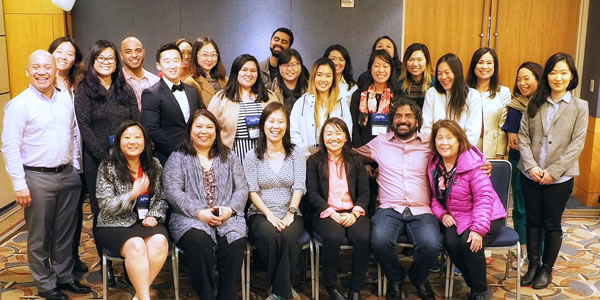
Most Asians and Pacific Islanders are not the same.
This is what Dr. Valerie Pang, faculty in the College of Education’s School of Teacher Education has been highlighting in her research.
Her efforts were recently recognized by an American Education Research Association’s Special Interest Group, Research on the Education of Asian Pacific Americans (REAPA), which presented her with their 2018 Distinguished Research Award.
“It was humbling and a great honor because the award highlights the need for research on Asian American and Pacific Islander students,” Pang said.
The Distinguished Research Award is presented to a scholar whose program of research has had a significant impact on our understanding of Asian Americans and/or Pacific Islanders and education.
Special Interest Groups within the American Educational Research Association provide a forum for the involvement of individuals drawn together by a common interest in a field of study, teaching, or research when the existing divisional structure may not directly facilitate such activity.
“On behalf of the REAPA SIG leadership team, thank you for your critical work,” OiYan A. Poon; Chair of Special Interest Groups told Pang via email when informing her she had received the 2018 Distinguished Research Award.
The primary focus of Pang’s research has been to demonstrate the diversity of Asian American and Pacific Islander communities and dispel myths and stereotypes.
“Many educators think most Asians and Pacific Islanders are similar. However the AAPI community is extremely diverse and students from various ethnic groups have different academic, developmental, linguistic and psychological needs,” said Pang. “The research was conducted to identify ways in which counselors, educators and administrators can address the educational needs of (Asian American and Pacific Islander) students.”
Pang concluded by stressing that everyone in the education arena should be aware of the diversity and different needs of all students, including those from Asian and Pacific Islander communities.
“They are not all nerds or science geniuses. Most have problems like other students,” Pang said. “I almost failed calculus in college though many of my teachers thought I would be excellent in mathematics. This was not true.”
